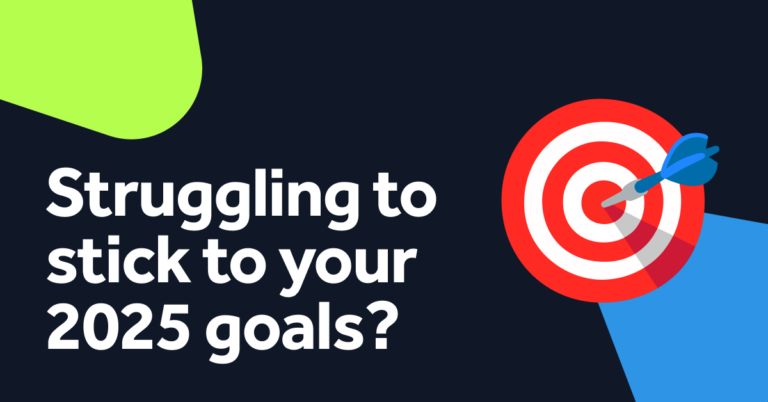
In the 21st century, technology has moved at lightning speed. New innovations have, in many ways, created a better and more efficient world. One of the most talked about areas of technological advancement is artificial intelligence, where human nature merges with technological genius. The use of artificial intelligence is already playing a role in daily life for individuals and being explored in almost every industry imaginable.
But while artificial intelligence can improve many things, what are the ethical implications of machines thinking like humans? Could we be biting off more than we can chew?
What is AI?
Artificial intelligence (AI) is the area of computer science directed at creating technology that works, reacts, and learns like human beings. The intelligent machines created using AI can learn from their mistakes, problem solve, and reason in a way that machines have not been able to until this point in human history.
While robots are the commonly thought of image of AI, this technology can already be found embedded in different products and services used in everyday life. Some examples of AI include:
- Speech recognition software
- Text-to-speech capability
- Email spam filters
- Business forecasting
- Mobile check deposits
Needless to say, AI is already very prevalent in the world today, and its use is only growing. More egregious forms of AI are now being found in the creation of human-like robots that can do everything from lift boxes in a warehouse to play catch.
Main Areas of Use
While AI seems scary to many people, it is already proving to be a tremendous boost to a variety of industries. This is because AI principals can be applied in different ways to create a more efficient and effective method of solving problems.
Healthcare

Producing the correct diagnosis for a patient is one of the most important aspects of the role of healthcare providers. Providers themselves can use their own knowledge-base to determine a diagnosis, but AI provides an added boost that can be extremely beneficial to accurately diagnosing a patient.
AI can aggregate vast amounts of patient data and suggest diagnoses and subsequent ways to treat patients based on this data. As more patient data is collected, AI can accurately identify a diagnosis and treatment. Robots using AI have even eradicated bacteria and harmful microorganisms to help hospitals get to a 99.99% disinfection rate.
Manufacturing

The manufacturing industry has always worked to become more efficient by any means necessary. In the 20th century, machines were introduced into manufacturing to increase productivity. Today, AI is being used to further this pursuit.
Andrew Ng, the creator of the deep-learning Google Brain project, notes how AI is set to improve almost all areas of the manufacturing process. “AI will perform manufacturing, quality control, shorten design time, and reduce material waste, improve production reuse, perform predictive maintenance, and more,” said Ng.
In the manufacturing world, AI can be used in conjunction with the internet-of-things (IoT) to connect a network of devices and machines. These machines can then predict when maintenance is needed before a machine malfunctions. For instance, “The use of vibration or sound sensors and torque monitors can help assess the state of the machinery, as dull tips move and sound differently,” notes a Deloitte report on digital supply networks.
Transportation

Transportation is maybe the most widely discussed area in which AI is expected to change radically. Self-driving vehicles have been envisioned for many years, with some vehicles already being tested on the streets. Self-driving trucks are already out on the road, transporting goods without the help of a human driver.
AI’s place in transportation extends further than on the road. Some companies are exploring the idea of self-navigating cargo ships, which could come into the picture as early as 2025. AI will help determine the safest, shortest routes, and steer ships accordingly.
Finance

Moving money from one place to another might not evoke thoughts of AI, but such transactions are largely influenced by automated, self-learning algorithms and processes.
AI helps predict fraud before it happens through the use of machine learning. Machine learning allows AI to compile and analyze large amounts of data at much faster rates than humans. By tracking financial information, AI can learn the spending habits and patterns of a consumer and identifying transactions which do not fit the patterns and could potentially be fraudulent.
It is also believed that AI is better than humans at providing a risk assessment to potential borrowers. Not only that, the AI assessing borrowers does not have the ingrained racial, gender, or age biases that accompany a human’s decision when it comes to assessing another individual. Allowing AI to assist in credit decision-making is not only more accurate and less biased, but it is also cheaper and faster than ever before. Today, you can submit a loan application and receive a response in as fast as 60 seconds.
The Role of Ethics in AI
It is all well and good that AI can optimize processes in ways human beings cannot. Yet, the role of AI in society will stir up questions that society is not yet ready to answer. This makes ethics huge in determining how to handle the repercussions of a society moving more and more toward AI in all areas of life.
A Jobless Society
If AI will eventually be able to do most human tasks more efficiently than humans themselves, what will happen to jobs? This question is one that concerns people for the future, as robots and AI are already eliminating jobs in industries like manufacturing and production.
An economic research paper written by economists at Columbia and Johns Hopkins describes that even though automation has been prevalent throughout history, “past episodes of automation left large areas of work that could only be performed by humans.” However, the problem with current AI is that “as artificial intelligence draws closer and closer to human general intelligence, much of human labor runs the risk of becoming obsolete and being replaced by AI in all domains.” Jobs that were once thought of as extremely secure and having good long-term prospects, like that of a truck driver, are now at the risk of a complete AI takeover.

The prospect of fewer and fewer jobs due to automation and AI have led many to propose out-of-the-box ideas to redistribute wealth in society. One of the most widely talked about income distribution ideas is that of universal basic income (UBI). Finland tested UBI by providing €560 per month to 2,000 unemployed people in the country. Results of this trial were mixed, as people receiving UBI were not able to gain employment any easier, but did report higher levels of happiness. Recently, United States Democratic Presidential candidate Andrew Yang has come out as a huge supporter of the idea, claiming he would implement UBI if elected president.
Removing Human Bias
As human beings, we have a propensity toward biases. Things like race, religion, and age are all things that human beings unconsciously weigh when looking at one another. The idea is that the implementation of AI would remove such biases from decision making. Unfortunately, this hypothesis has not necessarily proven to be true.
It turns out that AI can be just as biased as humans. A recent paper commissioned by the Council of Europe titled, “Discrimination, Artificial Intelligence and Algorithmic Decision-Making”, shows how AI can perpetuate human biases. This is because AI itself is largely influenced by the humans who create and manipulate the technology. According to the paper, “AI advances important goals, such as efficiency, health and economic growth but it can also have discriminatory effects, for instance when AI systems learn from biased human decisions.”
But AI could also take discrimination one step further and create new forms of discrimination which humans have not yet even imagined. As the paper notes, “AI also opens the way for new types of unfair differentiation (some might say discrimination) that escape current laws. Most non-discrimination statutes apply only to discrimination on the basis of protected characteristics, such as skin color. Such statutes do not apply if an AI system invents new classes, which do not correlate with protected characteristics, to differentiate between people.”
Security Risks
Imagine a driverless truck crashes into an unsuspecting motorist on the freeway. Who is to blame? Is it the engineers who developed the truck’s AI? The manufacturer for designing the truck incorrectly? Someone else? It is an inevitability that there will be mistakes made by AI in the future, and it is not so easy to handle such problems.
There have already been instances where this has played out. Last year, a self-driving Uber car hit a pedestrian, killing the woman instantly. Some blame the technology for failing to avoid the pedestrian, while others blamed the man in the driver’s seat who was watching videos on his iPad at the time of the accident. Because there is no precedent for this type of catastrophe, it is difficult to know how to assign out the blame appropriately.
AI also presents a security threat if used in malicious ways. The technology could be used to create new types of cyber-weapons used to attack drones and other smart devices, wreaking havoc on entire networks. AI was already used to promote fake news and propaganda in political elections, creating fake audio and video clips generated with the help of AI.

Keeping Ethics at the Forefront
The world is moving toward the ubiquitous use of AI in all areas of life. AI will influence not only how you get transported from one place to another, but your financial life, work environment, and so much more. With this being the case, it becomes more important for the global society to place a standard of ethics on AI in hopes of creating standards for this new technology.
Answering the question of what to do when AI creates massive unemployment, or how to handle an AI catastrophe, should be considered before any further steps are taken with the development of this technology. If not the world could look eerily similar to sci-fi thrillers like 1984 in the near future.


